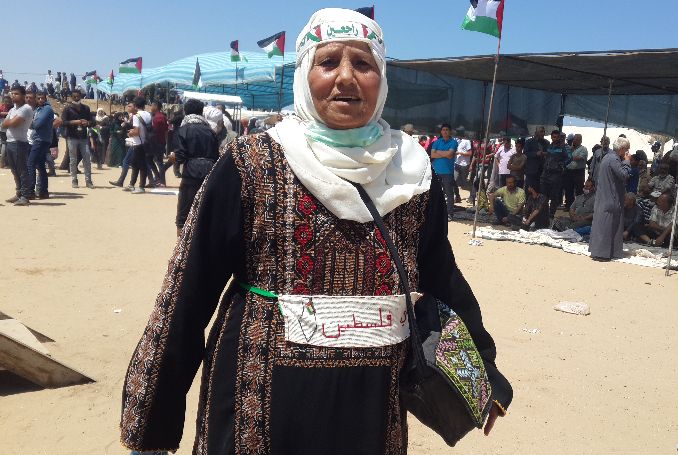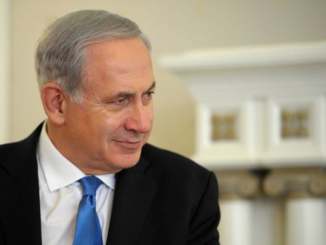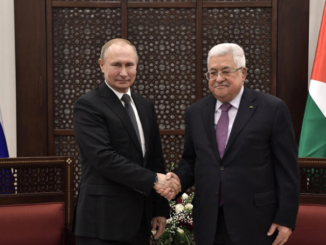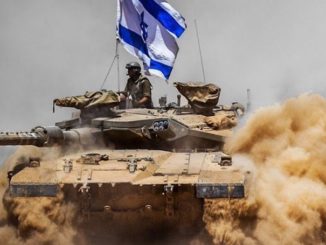
By Yousef M. Aljamal
In today’s world, people who live under injustice and ongoing colonialism, find many commonalities in terms of their experiences of continued struggle to live in freedom by addressing the continued legacy of colonization. I was honored to be part of a group of seven young people from Palestine and both sides of the disputed State of Jammu & Kashmir who met in Istanbul at the end of 2017.
During the meeting we discussed the situation in both territories and were able to identify similarities and differences. A key part of this was to better understand the continued impact of the imperialism legacy, in the Palestinian case the Balfour Declaration and Nakba, the Arabic word for Catastrophe, and in the case of Kashmir, the British leaving the state in an unresolved violent dispute.
“I got to better understand the historical and religious and political context in Kashmir. I got to see the similarities as well as the differences between both situations,” said Farah, a Palestinian student.
The partition of both Palestine and Jammu & Kashmir occurred in 1947, both were direct consequences of British rule. The divisions ignored the aspirations of the real owners of the land and created impermeable borders in both territories that people are still suffering the consequences of until now.
In the case of Palestine, the plan proposed creating a Jewish homeland on 54% of historical Palestine, however Jews only owned 6% of land and made 30% of the population. In the case of Kashmir, the creation of Pakistan and India brought about the division of Kashmir among the newly independent nation states without regard to the history of the area and its various ethnic groups.
“Though it was very depressing to discuss our narratives and history and the oppression that the people of our region are facing by occupiers, the discussions we had helped me build up solidarity and share knowledge and perspectives with Palestine’s youths. We are now sharing materials with each other so that we could understand our causes and work together in solidarity with each other against our oppressors,” said Ahmed, PhD researcher from the Indian side of Kashmir.
“Knowing that someone is well aware of your political situation and dealing with the same colonial policies and procedures makes you stronger in front of your oppressors, and makes you want to speak up and spread their experiences to the whole world,” noted a Maryam, Palestinian lawyer and political activist.
Palestinians call what happened to them in 1948 after the establishment of the state of Israel as “Nakba”, a term that seemed new to Kashmiris, yet this meaning of expulsion and loss was deeply rooted in their collective memory of separation and division. The idea of Nakba resonated with the Kashmiri participants, who, just like Palestinians, had their country divided, and were no longer able to return to their land.
The Line of Control in Kashmir, the most heavily militarized region on earth, made Palestinians think of fences Israel created around Jewish-only settlements, or say Gaza, the biggest-open-air prison in the world. It reminded them of the Apartheid Wall in the West Bank, which cut off Palestinians from their land.
“I realized that the tools used for subjugating human beings are the same in nature, as well as the pain and suffering people faced, and are still facing. Meeting Palestinians was very helpful to understand this,” said Mohammed, a post-graduate student from Pakistan administered Kashmir.
“I have changed my whole perspective about the situation in J & K. It’s not a fight between two countries, there are people who are seeking freedom from both sides. I also have learnt that “colonialism” is turning every heaven to hell not only in Palestine,” said Farah.
An African proverb says that “Until the lions have their own historians, the history of the hunt will always glorify the hunter.” In Palestine and Jammu & Kashmir, a young generation is emerging that is re-writing its own history, which has largely been hijacked by occupations and internal conflicts.
Speaking of this, Alyaa, a blogger from the Pakistan administered Kashmir noted, “What attracted and surprised me the most was the common narrative of victims of conflicts, or those living in disputed lands, which is very much different than the literature written about them.”
With the importance of narration of mind, the question today is how to turn the British Partition Plans, both in Palestine and Kashmir, which resulted in ongoing Nakbas for the two people into a new start in which unity and justice are achieved and artificial borders are removed. The implications of these Nakbas are deeply rooted in people’s minds, but the same as events resulting from the legacy of Britain both in Palestine and Kashmir turned into a painful saga of history, it is time to bring about a new future, that is based on building solidarity and facing injustice and division with justice and unity.
As Saeed, a researcher from Indian administered Kashmir put it, “Most of us were made to conclude that we were not equal and can’t be to others.” For this to end, the people of Kashmir have to get rid of this belief, the same as protesters at the Great March of Return in Gaza are doing these days. Collective mobilization resulting from this transnational solidarity could bring colonialism to its knees and sometimes all it takes is greater understanding of shared experiences and moving forward in solidarity.
According to Maryam, of the Palestinian participants, the workshop.
“actually raised the hope in me for accomplishing something great and the coming generation who is living under oppression have more in common than differences. For me, meeting with people from Kashmir and being exposed to their experience of colonialism made it sure that solidarity between the people of the two nations is the key.”
(Note: The views in the article are of the author. The workshop was organized by the Centre for Trust, Peace and Social Relations, Coventry University and funded by Antipode Foundation Ltd.)








It would seem that wherever the British Empire has been there are indigenous people who have suffered their own particular ‘nakba’s. Colonialism still resides in the remnants of empire.